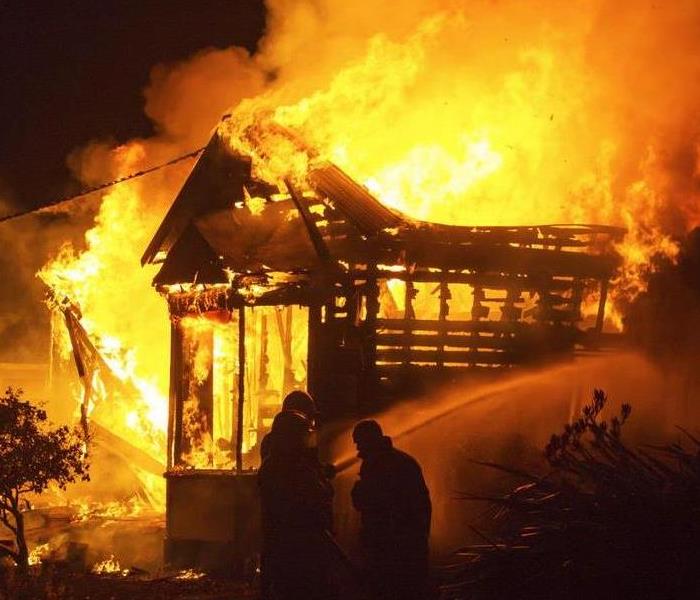Keep Your Home Safe From Fire!
9/17/2018 (Permalink)
Accidental house fires remain a serious safety threat to homeowners, renters, and their families. Each year, roughly 3,400 people are killed in home fires or by burn injuries, making them the third-most-common cause of accidental deaths at home. Eight out of 10 fire-related deaths occur at home—the place that is the very embodiment of comfort and security.
Following are the most common ways that home fires ignite and provided a list of simple steps homeowners can take to prevent them.
Attention: In addition to the steps listed below, all households should have at least one smoke alarm on each floor and preferably in every bedroom. New smoke alarms should be installed every 10 years—and if you don't know how old your smoke alarm is, you should get a new one. Families should also plan and practice a home fire drill at least twice a year so that everyone in the house knows how to get outside fast in the case of a fire. If you don't already have one, the Home Safety Council has resources for creating such a plan available here.
Fire Threat 1: Cooking
Fire safety starts in the kitchen. Cooking—particularly stove-top cooking—represents the leading cause of home fires. Many such fires occur after residents put something on the stove but become distracted and forget about it. Solution: Stand by your pan. Because cooking causes so many home fires, it's essential to give anything that's on top of your stove has your undivided attention. If you have to leave the kitchen, turn the heat off [the burner] before you answer the phone or leave the room.
Fire Threat 2: Heating
The second-most-common cause of home fires is heating—although in the winter months, it becomes the leading concern. Portable, electric space heaters start a great deal of trouble, as sheets or window curtains accidentally come in contact with the unit and ignite.
Solution: Give heaters space People using space heaters should ensure that they are far enough away from other objects to avoid danger. A space heater needs 3 feet of clear space all around it in all directions, keeping it away from draperies, furniture, bedspreads, people, and pets. In addition, homeowners should have their central heating equipment professionally inspected and serviced each heating season. And if you regularly have logs burning in your fireplace, get your chimney inspected and cleaned annually as well.
Fire Threat 3: Smoking
In addition to its health dangers, smoking is the third-most-common cause of home fires—and the top cause of home fire deaths. Such fires can occur as smokers lose track of their still-smoldering butts, which then come in contact with flammable surfaces such as couch cushions.
Solution: Take it outside If you have a smoker in the house, the best way to prevent cigarette-related home fires is to institute a policy of no smoking indoors. Most people do not have as many combustible items around outside. In addition, cigarettes should be doused with water before they are thrown away to make sure they are completely extinguished.
Fire Threat 4: Electrical
Faulty or deteriorating electrical cords are another top cause of home fires. Cords that become frayed or cracked can send sparks to flammable surfaces and start a fire.
Solution: Cord checkup Check all of your electrical cords to ensure that they are in good shape, and replace any that are worn out. In addition, make sure you are not overloading circuits. It should be one plug per receptacle—you don't want that octopus thing going on.
Fire Threat 5: Candles
Since they have open flames and are fixtures in many households, candles are also among the most common sources of home fires.
Solution: Think about batteries Instead of using traditional, open-flame candles, consider switching to battery-operated candles that look and perform like real ones. If you do use traditional candles, make sure there is always an adult paying attention in the room when one is burning. (The flame should be extinguished when the adult leaves the room.) Get out of the habit of lighting a candle in a room and just leaving it burning. You are inviting disaster. Finally, candles should not be lit in your bedroom.





 24/7 Emergency Service
24/7 Emergency Service
